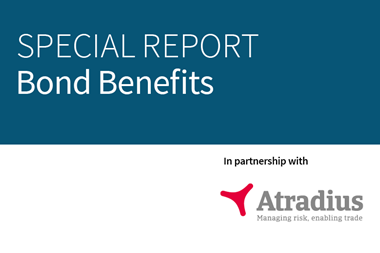Two aspects to the COVID-19 solution – testing and vaccinations – will create particular headaches for employers
Mitigating the risk of contracting COVID-19 has been the main topic of conversation for weeks but with a number of governments starting to lift lockdown restrictions, employers will be looking at their obligations towards employees when it comes to the impending “return to work” strategy.
With an ever-expanding list of potential actions, from hand washing to face coverings to social distancing to self-isolation to mobile phone apps, the workplace provides some unique challenges.
While hand sanitiser, PPE, staff monitoring and office reconfigurations go some way to mitigate part of the risk, two aspects to the COVID-19 solution – testing and vaccinations – will create particular headaches for employers.
Jabs for jobs?
A COVID-19 vaccination is almost the Holy Grail at this point but any employer looking at offering vaccinations must be careful of the pitfalls in a lax approach.
Firstly, can – or even should – an employer require vaccinations and tests of staff?
There are significant legal, medical and human rights considerations to this question.
As a core underlying principle of medical law and ethics, medical professionals in the UK are required to obtain a patient’s informed consent before administering medical treatment. This is an element of the overarching principle of patient autonomy: competent adults are entitled to make informed decisions about their own medical care. Indeed, there are serious consequences if a medical professional does not seek the informed consent of a patient so that is increased considerably within a workplace environment.
Employees have the right to refuse treatments or tests for any reason whatsoever. There have been instances where individuals with mental illnesses have been held to have the right to refuse treatment, even if the refusal may appear irrational or place the patient’s health or life at risk. This concept extends to the right to refuse vaccinations or tests. There is no need for an individual to state a medical reason or religious exemption in refusing a vaccination or test.
Outbreaks
The law also does not currently contain an exception to permit compulsory vaccinations in the case of a disease outbreak. The Public Health (Control of Disease) Act 1984 permits regulations to be made to control the spread of disease, for example requiring the medical examination, detention, isolation or quarantine of persons. However, the Act makes it clear that such regulations “may not include provision requiring a person to undergo medical treatment” including vaccinations.
There is little or no case law concerning the vaccination of adults given that, under the current NHS vaccination schedule, individuals should have completed the schedule by the age of 15. The COVID-19 pandemic has thrown open a host of legal questions and, given the severity of the outbreak, one would have to be should any vaccine be made mandatory in the UK on public policy grounds?
Mandatory vaccinations are not currently permitted but there is a historical precedent for compulsory vaccination legislation in the UK. Between 1853 and 1873, Parliament passed a series of Acts that made the smallpox vaccination compulsory. Despite the disruption caused by the pandemic, it is probably unlikely given that the UK has been comparatively reluctant to enact compulsory vaccination measures. The responsibility will likely fall on individuals, the NHS or employers to oversee any vaccines or testing regime, similar to how annual flu jabs operate now. They can be done privately, by the NHS for vulnerable people or offered by employers to staff.
Making a vaccine or an antibody test a prerequisite of returning to work would need to be managed very carefully.
Jules Quinn is a partner at King & Spalding




















No comments yet